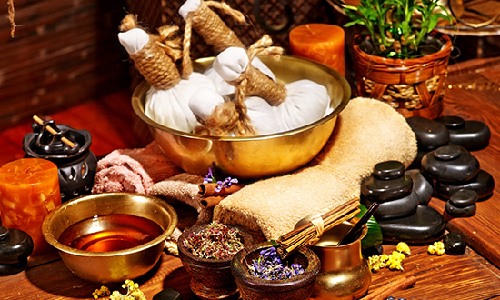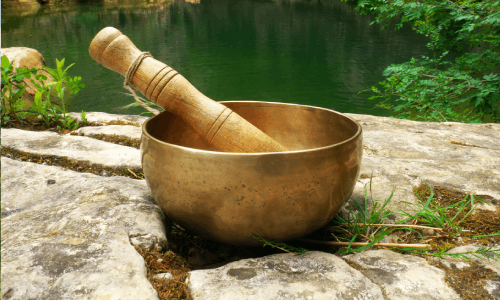If you feel your body needs a good, deep cleanse — more than just drinking detox teas or juices, Ayurveda has a millennia-old, time-tested approach to detox your system from within – Virechanam. It is one of the five therapies of Panchakarma, a powerful detoxification technique of Ayurveda that helps remove all the toxins, particularly associated with Pitta Dosha. If you are experiencing skin issues (like acne or eczema), slow digestion, or even unexplained grumpiness, this therapy can break that cycle and help your body get back to balance. But before you even think about undergoing Virechanam, let’s break it down — what it is, how it works, who should and shouldn’t do it, and what you should eat before and after for maximum results. What is Virechanam in Ayurveda ? Virechana or Virechanam is a controlled purgation therapy used to clear excess Pitta Dosha and toxins (Ama) from the body through the GI (gastrointestinal) tract. It is designed to eliminate toxins without weakening the body. Rather, it leaves you more refreshed and rejuvenated. Here’s how it works: Preparation phase (Purva Karma) Before the actual detox, the body is readied with Snehapana (internal oleation with medicated ghee) and Swedana (sweating therapy) to loosen toxins. Main procedure (Pradhana Karma) A carefully selected herbal purgative is administered to induce controlled bowel movements, flushing out toxins. Post care (Paschat Karma) The digestive fire (Agni) is weak after detox, hence, diet and lifestyle should be handled delicately to facilitate proper recovery. Virechanam Ayurvedic Detox Benefits Why should someone go through Virechanam? Here are some incredible benefits: Liver detoxification Virechanam eliminates excess Pitta, making it one of the best treatments for abdominal health. The stomach and small intestine are the seats of Pitta. Therefore, it can be beneficial for those with fatty liver, jaundice, or excessive heat in the body. Skin diseases and allergies According to Ayurveda, the root cause of major skin problems like acne, eczema, psoriasis, and urticaria (Sheetapitta) lies in poor liver health and Pitta aggravation. Virechanam helps balance Pitta dosha and restores liver health. This prevents the recurrence of skin conditions and promotes a healthy glow. Weight loss Since this therapy targets the intestines where major digestion happens, the healing starts immediately. As the gut gets rid of toxins, Agni increases resulting in better nutrient absorption and improved metabolism promoting weight management. Mental clarity and emotional balance Since Virechanam clears accumulated Pitta, it also helps to reduce anger, frustration, and irritability. A balanced Pitta fosters a sense of calm. Digestive Health As Virechanam cleans the gut, it helps to relieve chronic acidity, constipation, indigestion and bloating. Virechanam Therapy for Liver Detox In Kerala, if you really love someone, you say, “Ente Karale.” It means ‘Oh, my dear liver.’ Yes, it is neither the heart nor the brain; but the liver that has been designated as the most important organ in the body. The liver does multiple jobs – detoxification, blood purification, fat metabolism and so on. According to Ayurveda, the liver is the seat of Pitta Dosha. Over time when we constantly consume unhealthy food, live in stress, and lead an unhealthy lifestyle; the liver suffers an overload. With its Pitta getting imbalanced, the liver becomes fatty and leads to inflammation in the body. Virechanam is like a reset button as it helps the liver to function optimally. To be honest, I’ve seen patients with serious skin problems, stubborn acne, and sluggish digestion do wonders after Virechanam. It’s like unclogging a drain. The moment toxins are removed, everything flows better! Who Should and Shouldn’t Undergo Virechanam Therapy ? Virechanam is best suited for: People with excess Pitta Dosha (heat-related issues) Chronic acidity, ulcers or poor digestion Liver disorders like fatty liver or jaundice Skin conditions like acne, eczema and psoriasis Frequent anger, irritability or stress due to Pitta imbalance Obesity and slow metabolism You should avoid it, if: Pregnant or lactating women People with extreme weakness or low body weight Those with severe diarrhea or dehydration issues Children and the elderly unless prescribed by an expert Virechanam Diet: What to Eat Before and After Before Virechanam, you are advised to eat light foods to prepare the body. After this therapy, digestion is weak, so again careful dietary management is required. Before Virechanam: Light khichdi or rice gruel (Peya) Warm, cooked foods with minimal spices Buttermilk for digestion (Takra) After Virechanam: Start with rice gruel (Peya) and gradually move to cooked vegetables Avoid spicy, oily, and heavy foods Sip on warm water or herbal teas to keep digestion smooth This is just a basic guide. As you undergo the treatment, the doctor will guide you with a detailed diet plan that needs to be followed meticulously throughout the day. Best Herbs for Virechanam Detox in Ayurveda Many herbs are used in Ayurveda for Virechanam, depending on the Prakriti and condition of the patient. Some of the commonly used ones are: Triphala – A gentle detoxifier for the intestines and liver Aragvadha (Cassia fistula) – Best for clearing excess Pitta Haritaki – Improves digestion and prevents bloating Amalaki (Indian Gooseberry) – Strengthens the liver and boosts immunity Draksha (Raisins) – A mild laxative that nourishes the body Virechanam vs. Vasti: Which Ayurvedic Detox is Better ? Many people ask me—should I do Virechanam or Vasti? The answer depends on your Dosha imbalance. Virechanam is primarily performed for Pitta aggravation (heat, acidity, skin problems, liver problems) Basti is best for Vata disorders (joint pain, constipation, anxiety, dryness). Key Differences: Virechana vs. Vasti Feature Virechana Vasti Targets Dosha Pitta (Heat, inflammation, toxins) Vata (Dryness, constipation, joint issues) Detox Pathway Intestines (Bowel movements) Colon (Enema therapy) Treatment Type Purgation (Laxative-based cleansing) Medicated enema (Oil or herbal decoction) Best For… Continue reading Virechanam | The Ayurvedic Detoxification Technique
Virechanam | The Ayurvedic Detoxification Technique





